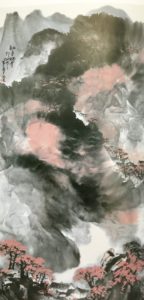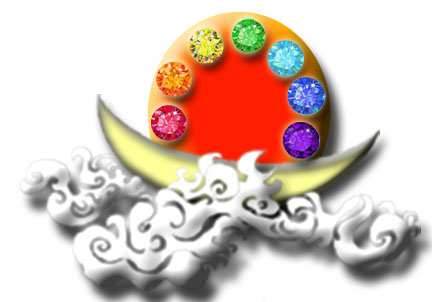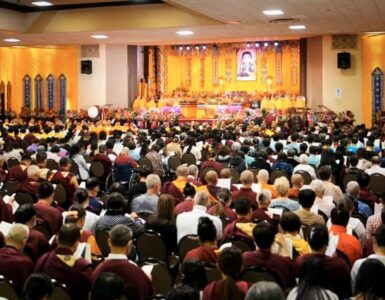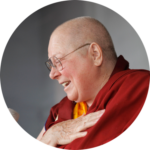
Buddhas and Bodhisattvas use many forms and methods to expound the dharma and benefit living beings. Sometimes they use the gentle “Bodhi Voice” and sometimes they may use the more wrathful “Vajra Voice.” They may also manifest the kind compassionate bodhi form or conduct, but they may also manifest a fierce severe vajra form when that is needed.
Erroneous View #69: THE VIEW THAT ONE WHO EXPOUNDS THE DHARMA IN A GENTLE VOICE IS DEFINITELY A BODHISATTVA
Those with this view think that people who expound dharma in a very gentle voice and whose tone of voice is very compassionate are definitely Bodhisattvas. You should bear in mind that some people put on an act by purposefully changing their voice to make it sound soft and compassionate. Many people are deceived upon hearing their voices and regard them as incarnations of Bodhisattvas. Actually, they are just purposefully assuming a mysterious air by pretending to be compassionate. All of the dharma they expound is heresy rather than the definitive truth and goes against the teachings of the sutras. Therefore, you should not think that one who expounds the dharma in a gentle voice is definitely a Bodhisattva. Whether one speaks in a gentle voice or loud voice is not determinative of whether he is or is not a Bodhisattva. Whether one is a true or false Bodhisattva is determined according to the principles of the Buddha-dharma.
Erroneous View #70: THE VIEW THAT USING THE VAJRA VOICE TO EXPOUND DHARMA AND ELIMINATE KARMIC HINDRANCES IS NOT COMPASSIONATE
Those with this view think it is not compassionate to give a discourse on the dharma in which the vajra voice is used to severely reprimand, criticize, and wake up ignorant and stubborn living beings. This is an erroneous view. Some living beings can only be woken up by being seriously scolded in the vajra voice. Otherwise, they will continue in their confused ways. This use of the vajra voice is not uncompassionate. Rather, it is an act of true great compassion. Whether an act benefits living beings or not is the basis for determining whether that act is in essence compassionate or not.
Erroneous View #71: THE VIEW THAT ONE WHO USES THE VAJRA FORM OF BODHI CONDUCT TO BENEFIT OTHERS IS NOT ONE OF HOLY VIRTUE
Bodhi conduct is manifested through a compassionate face and loving expressions. On the other hand, vajra conduct is manifested through severe reprimands and punishments. It is manifested by using fierce dharma. It is a completely erroneous view to think that those who use the vajra form of bodhi conduct to teach and transform living beings are not holy ones. That is because Buddhas engage in various kinds of deeds and manifest in various forms. For example, Kuan Yin Bodhisattva manifested as Truton, the most powerful king of the evil spirits in the hell realm. Truton tore evil spirits into pieces and ate them. In this way, Truton taught and transformed countless evil spirits. In reality, he acted out of the greatest compassion, for he used such skillful means to raise those evil spirits to higher realms of existence. In esoteric Buddhism, there are many vajra Bodhisattvas whose appearance is very ferocious. Actually, they benefit living beings out of the greatest compassion. Take, for example, the dharma-protecting deity Ruonama, who is a very formidable golden king of great power. He is the highest overlord of ghosts, but he also possesses holy powers and has the realization of a holy one. Other examples are the dharma-protecting deity Rehula and the dharma- protecting deity Ekajati, both of whom look extremely fierce. Many people are frightened when they see such an image. They think, “How could they be holy ones? They are not compassionate at all. How frightening!” That is wrong. They are masters of great compassion who benefit living beings. It is just that their methods are different from those used by most others. Therefore, the view that one who uses the vajra form of bodhi conduct to benefit others is not one of holy virtue is an erroneous view.




Add comment